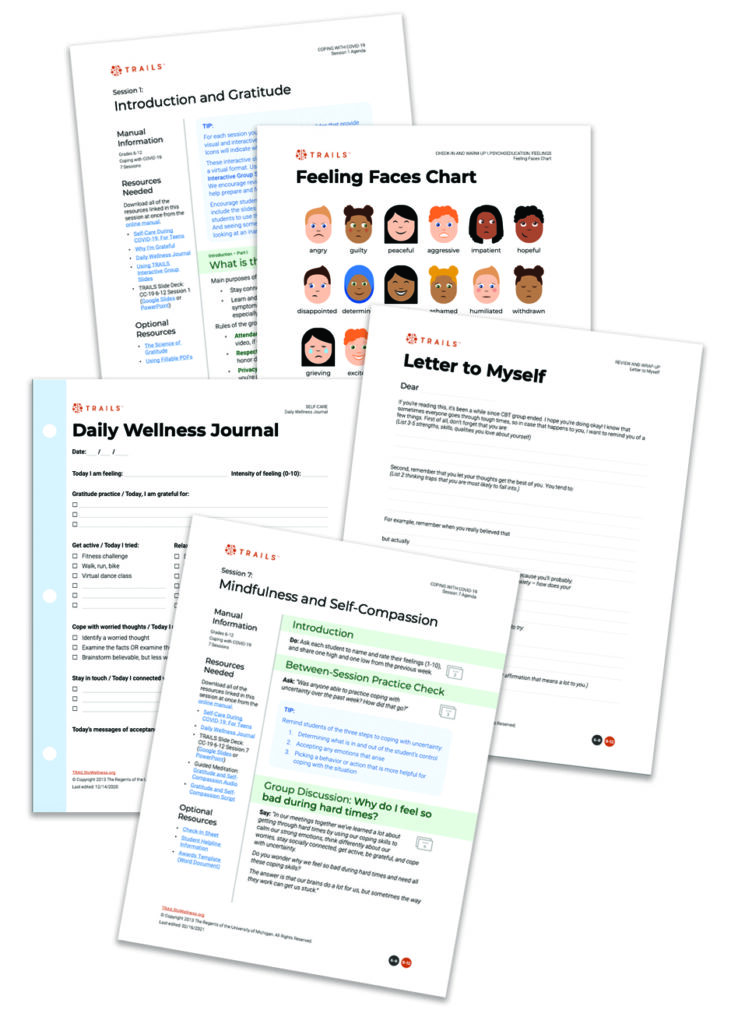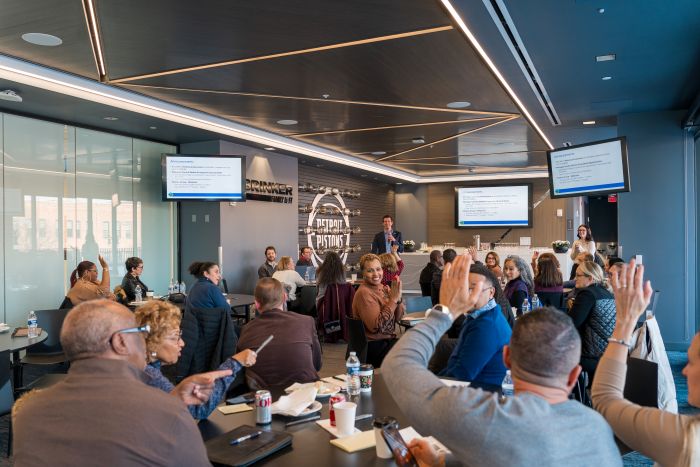
Prior to COVID-19, the University of Michigan TRAILS program was striving to reverse statistics demonstrating that mental illness was impacting nearly 50% of adolescents, yet only 20% were accessing effective treatment. Hundreds of school mental health professionals – like school social workers and counselors – had received training and support from TRAILS to run skill-building groups at their respective schools. Through these groups, students were learning coping strategies based in cognitive behavioral therapy (CBT) and mindfulness, two techniques proven to reduce symptoms of anxiety and depression for youth.
Enter COVID-19.
With the shuttering of schools in March, TRAILS main avenue for reaching students was blocked. It was immediately apparent that the need to shelter-in-place was going have a devastating impact on already-staggering youth mental health statistics.
TRAILS had to act fast.
Clinical experts on the TRAILS team created Coping with COVID-19, a 7-session manual with accompanying materials designed for school mental health professionals to use to continue their support of student wellness in a virtual format. Two manuals were created – one for grades 3-5 and one for grades 6-12 – that introduced skills students could use to build effective coping skills for managing stress, worry, sadness and poor sleep.

The comprehensive manuals include interactive practice, opportunities for group discussion, interactive slide decks, links to all resources including web-based fillable worksheets, and tips to help leaders with virtual delivery.
“School staff are experiencing unprecedented professional challenges as they make contact with students and families, navigate technology, and help their students cope,” said Elizabeth Koschmann, TRAILS program director. “Our close collaboration with DPSCD made it possible to quickly and efficiently provide their staff with training on this comprehensive resource that they can use either in-person or virtually to help students cope during this critical time.”
TRAILS held several virtual trainings to familiarize school mental health professionals with the content and resources, and offers ongoing support through weekly calls to answer questions about the materials, running student groups, or navigating technology. More than 300 DPSCD school mental health professionals have been trained to deliver the Coping with COVID-19 curriculum.
Post-training surveys indicated that more than 95% of users found the materials easy to use and felt well prepared to utilize the materials after the training. In addition, the vast majority said students appeared to enjoy the sessions with nearly 98% of users feeling that the content will benefit the mental health of students. TRAILS will continue to collect and analyze feedback to revise the manual to ensure it meets the needs of our school partners.
TRAILS would not have been able to expedite this programming pivot had it not been for dedicated supporters, like The Children’s Foundation. Our funders have helped us to build an incredible foundation upon which we are able to expand and enhance our relationships with school partners. TRAILS is presently working on a plan to replicate training and support statewide, with the goal to provide access to effective mental health resources to students in all 56 of Michigan’s intermediate school districts.



